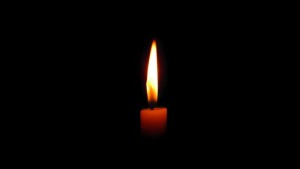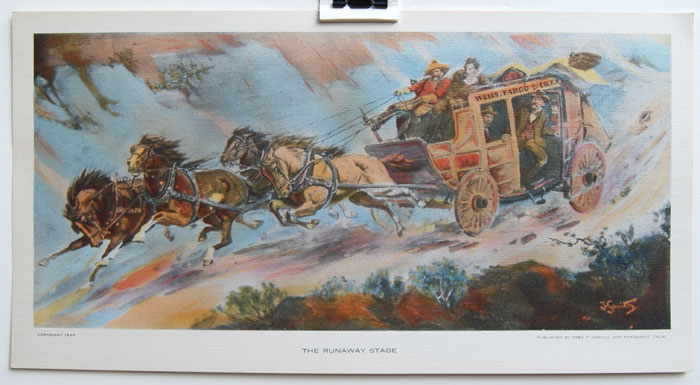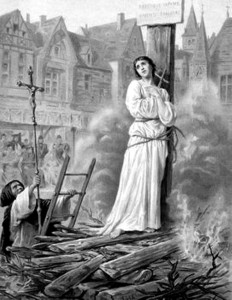Mary kept all these things, and pondered them in her heart. –Luke 2:19
The Reverend Dr. Luke Harris and his wife Sarah knew what the two men who came to their door would tell them that Sunday afternoon, Christmas Eve of 1967.
Sarah had seen them first.
“Here they come.” Her voice, calm and even, surprised her.
Luke opened his mouth to reply, but his chin shook, so he clamped it shut.
Sarah had sat in silence in the living room all afternoon with a book in her lap, but she had lost her place hours before. The room had darkened as evening fell, but neither she nor her husband had turned on a light.
Sarah was not sure how long she had been staring out the window when the men arrived. Walking in step between the snow banks on each side of the walkway, wearing dark uniforms with medals on their chests, they marched up the steps onto the porch. They halted at the door. They could not see her in the darkened room, but she saw them standing at the door in the glow of the porch light. One of the men, a corporal, probably not yet twenty, looked as if he had never yet needed to shave. He looked at the other one, the chaplain, and Sarah wondered, when she saw the way he looked to the chaplain for guidance, if maybe this was his first time. When the chaplain nodded, the boy raised his white-gloved fist to knock, then held it in position for a second. So quickly one might have missed it, the boy crossed himself; not a full forehead to umbilicus, shoulder to shoulder; just two fingers, up and down, side to side, like a prayer mouthed but unspoken, not even whispered.
Sarah, as Protestant as any, nevertheless joined him in silent prayer, her eyes wet, but open.
The boy knocked. Neither Luke nor Sarah moved.
Until I hear them say the words, David still lives, Sarah told herself. She and Luke sat in the darkness and kept their son, their only son, alive for just a moment longer until the corporal knocked again. Luke answered the door and their lives changed forever.
“Regret to inform you, . . . killed in action, . . . . sorrow for your loss . . . grateful nation,” the memorized words, spoken as a recitation, ran together.
After they left, Luke exhaled. “Well,” he said, “That is that.” He donned his overcoat and gloves. He looked at his wife who had not moved from her chair. “Will you worship tonight?” he asked.
Sarah wiped her tears and looked up at him. “Yes, of course,” she said.
Luke preached the Christmas Eve sermon he had prepared in the days before the visit of the two men. The words he had written did not sound familiar, even as he spoke them. He knew then that his life would be divided in two: life before David’s death, and life ever after.
At the communion table, he broke the bread, poured the wine, and inhaled deeply the aroma of the elements before he spoke the liturgy. “broken . . . take, eat . . .poured out . . . drink ye all….” The memorized words, spoken as a recitation, ran together.
After he had spoken the benediction and extinguished all the candles, he did not wait at the door to exchange Christmas greetings with his congregation. He did not want to put them in that position of saying two such incongruous things: “Merry Christmas, sorry for your loss.” He did not think he could bear it.
He hung his robe in the closet of the church study, closed the closet door, turned and looked around at the spacious room; the shelves of books, the oak desk and chair, and a cushioned chair where parishioners in need of comfort had, for a dozen years, found refuge in his counsel. He sat in the parishioners’ chair and could not remember if he had ever sat in it before. It was lumpy, not at all as comfortable as he had expected.
People would refer in the future to this moment as “his decision.” It was not a decision. It was a revelation. It was as if an angel appeared before him, but stood in silence, as if it had forgotten its opening line, “Fear not.”
Luke was sore afraid in the darkness of this revelation. When the curtain pulled back, he saw the place where his faith had lived, and it was cavernous and dark and hollow, like a sanctuary after a wedding, emptied of life after everyone has left for the reception.
It took him all of Christmas Day to pack his books.
He loaded the black Underwood typewriter into the car with the boxes of books. He returned to the study one last time and sifted through the drawers of the oak desk for anything that might be important. He found a plastic bag with some small black screws left over from the last time he had cleaned the typewriter, but he threw them away. He always seemed to have pieces left over.
By the end of January, he found a job teaching undergraduate Hebrew and Greek in a liberal arts college far from their upstate New York roots. Luke and Sarah settled in to a small town in the Texas Hill Country, not far from San Antonio. They began a new life together, the life Luke called, though only to Sarah, “the life after death.”
Sarah found a church, but Luke rarely attended. He spent his Sundays gardening when the weather allowed, and reading when it did not. The wheel barrow he bought at the hardware store shortly after they arrived in Texas came in a box. After assembling it, he wheeled it around to the back porch where Sarah was reading in the sun. “Only two pieces left over,” he said, unable to hide the pride in his voice.
The wheel wobbled, but Luke did not mind. “That’ll have to do,” he said, and for eight years it did.
It came to pass that on Christmas Eve of 1975, Luke had two things he was required to assemble:
One of them was a sermon, and the other was a bicycle.
Why he had agreed to preach on Christmas Eve, he could not fathom; but, he had begun to suspect that it was a conspiracy between his wife and his friend. His friend Ian, who taught biblical studies, had set him up.
“Immanuel is a small congregation between pastors,” Ian had said. “I would preach there myself if I hadn’t already committed to Kerrville.”
“I don’t preach anymore,” Luke said. “I don’t even know what I believe anymore.”
“For God’s sake, Luke,” Ian said. “You know you don’t preach your own faith. You preach Christ’s faith. Just read the story. Tell them what it says. Throw in a Greek word here and there, it will impress them.”
“I just don’t think . . .” he objected, “that I would be up to it. Especially on that night.”
Ian interrupted him, “Pull out an old sermon. Touch it up, if you want. This congregation is a handful of saints so solid in their faith you can’t do them any harm. Just tell them the Christmas story, light the candles, celebrate Communion, and sing Silent Night. They have it all memorized by now, they just want to hear it again.”
Luke opened his mouth to object again, but Ian stopped him. “I would be eternally grateful,” Ian said.
Whatever Luke did or did not believe by then, he did believe in doing things for a friend, especially a friend who had done so much for him; who had warmly welcomed Sarah and him, even with their Yankee accents and Northern reserve.
He had only one more objection. “I don’t have a robe anymore,” he said. Luke had left his black Geneva gown in the church closet back in New York.
Ian waved his hand as if brushing away a bit of dust. “I have one you can borrow.”
And so, Luke sat in his home study at his old Underwood typewriter on Christmas Eve morning and stared at a blank sheet of paper. By the time Sarah brought him lunch, the paper had begun to stare back at him, blankly.
At two in the afternoon, he opened his Bible to the Gospel According to Luke and began to type. “And it came to pass in those days, that there went out a decree from Caesar Augustus . . .” He hit the return handle on the typewriter and the carriage flew off of the typewriter across the room and landed on the floor.
He stared at the carriage lying in the corner, then looked back at the remains of the typewriter in front of him, and the black inky ribbon that floated to the carpet between one and the other. Had it been red or green, he thought, it would have been festive.
A memory emerged, like a dream that returns in the middle of the day: a little plastic bag with two small black screws. The leftover pieces had caught up with him, even as he knew they would.
Luke opened his file cabinet and found an old Christmas Eve sermon manuscript. He folded it up and stuck it between the pages of his black leather Bible.
“It’ll have to do,” he said, because he still had to go back to his office and pick up the robe Ian had left for him.
And, since it was Christmas Eve, he had to go downtown and buy a Christmas present for Sarah. It was not that he had procrastinated; no, it was part of his plan. She wanted a bicycle, she had pointed to a bicycle in the window of Treadwell’s hardware shop, and that is exactly what he planned to buy for her–not a boxed up bicycle from the back that he would have to assemble, but the very bicycle in the window.
When he arrived at Treadwell’s it was nearly four o’clock on Christmas Eve, so he delivered the pitch he had prepared: “I’ll give you $20 extra for the bicycle in the window already put together.” The young sales clerk, a girl named Maria who lived down the street from Luke and Sarah, said, “I don’t really have the authority to do that.”
She called Mr. Treadwell at home. He stood firm. “That’s a man’s bike in the display. Luke needs a woman’s model for Sarah.”
So, instead of a bicycle, Luke bought a big box full of bicycle parts.
“Don’t worry,” Maria said. “I put together the bicycle in the window. It only takes a couple of hours.”
Luke sighed with a prayer too deep for words as he loaded the box into the trunk of the Monte Carlo and headed for his office. He found there the robe Ian had left for him; Ian’s extra robe; his white robe. And, Luke had not thought about the fact that Ian was over six feet tall and Luke was not. Their students exaggerated, but only a bit, when they called Ian and Luke “Goliath and Zacchaeus” whenever they walked across the campus together. The robe would swallow him, but when he tried it on and looked in the mirror, he sighed, “It’ll have to do.”
Luke arrived home just in time to change clothes so Sarah could drive them across town at six o’clock for the seven o’clock service. Luke went through his mental list: Bible, old sermon manuscript, church address, robe. He plowed through that nagging feeling that he had forgotten something, and got in the car.
Sarah drove as night fell and a light fog settled over everything. On their way, he remembered. “I was supposed to bring communion bread,” he said. “That’s what I forgot.”
Sarah sighed. “I’ll go get some bread. You go sit down in the church and get focused. Go pray until the service starts. I’ll be back soon. Something is bound to be open.”
Luke stepped out of the car at the corner and watched the taillights of the Monte Carlo fade into the foggy night. He did not wait until he was sitting in the church to begin praying because when he looked up, he saw the choir already gathered outside the front door. He heard organ music. He prayed, “God help me, I thought it started at seven!” and ran across the church yard, pulling on his long white robe at the same time.
“Sorry I’m late,” he said, as he pushed through the choir and took his place at the front of the procession. The choir broke into “Angels We Have Heard on High,” and the procession moved into the church and the man next to Luke, eyes wide, asked, “Who are you?”
Luke began to introduce himself, to say, “I’m the preacher tonight,” but when he looked at the man next to him at the front of the procession and saw that he wore a robe and an intricately embroidered stole, his words caught in his throat. He looked up at the front of the church and saw a statue of the Virgin Mary.
This, he realized, is not a Presbyterian Church.
The question still hung in the air, “Who are you?”
That was when the first miracle of the night arrived. His sense of humor, long buried in a fog of grief, returned.
“I am an angel of the Lord,” he told the astonished priest, “Fear not: for, behold, I bring you good tidings of great joy, which shall be to all people.” By this time, they had reached the chancel and Luke spotted the side exit. As he glided toward it, hoisting his flowing white robe to keep from tripping over it, he turned and called to the priest, “Glory to God in the highest, and on earth peace, good will toward all.” With that, he dashed out into the night. He crossed the street where the plain white prairie gothic church stood waiting. The sign in front announced candlelight and communion at 7:00 pm.
Stepping inside, he caught his breath and greeted the puzzled man who handed him a worship bulletin and a candle. The man stared at him from windblown hair to white robe that dragged on the floor, and back up to the sleeves that covered his hands.
“Merry Christmas,” they said to one another in unison.
When the service began, Sarah had not yet returned. Luke preached with an eye on the communion table which had a chalice and pitcher, but no bread, and an eye on the door at the back, where, any minute, he knew, he hoped, he prayed, Sarah would walk through with the communion bread.
He spoke slowly and drew out each dramatic pause to give her more time.
When he reached the end of the sermon, the congregation sang “O Come, All Ye Faithful.” As the last chorus began, Sarah stepped in, carrying a basket of bread, and came, faithfully, down the aisle and up to the communion table where Luke took from her the basket with bread wrapped in a white napkin.
As the congregation sang, “O come, let us adore him,” and Luke placed the bread on the table, Sarah mouthed something to Luke. What was she saying? “Took the bus?” He wondered if the Monte Carlo had broken down and she had to take a bus and that was why she had taken so long.
When he lifted the cloth from the bread, it came to him. She had not said “took the bus.” There were no busses running on Christmas Eve. There were, in their little town, no grocery stores open after 4 p.m. on Christmas Eve. She had gone all the way back to their house and found the only bread they had, far back in the freezer, left over from summer.
She had said, “hot dog buns.”
 Though she had cut them into neat little cubes, she left one of them sitting on the top, unbroken. The second miracle of the night arrived when he looked out over the congregation and recited the invitation to the table, “This is the joyful feast of the people of God.” Something fell into place; something fell back into place that had been missing since the two men had visited that Christmas Eve eight years before. It began with an overwhelming sense of gratitude when he looked at Sarah with her mischievous smile; it grew into his own barely stifled laughter when he looked at the neatly cubed hot dog buns on the communion table and thought about the befuddled priest across the street.
Though she had cut them into neat little cubes, she left one of them sitting on the top, unbroken. The second miracle of the night arrived when he looked out over the congregation and recited the invitation to the table, “This is the joyful feast of the people of God.” Something fell into place; something fell back into place that had been missing since the two men had visited that Christmas Eve eight years before. It began with an overwhelming sense of gratitude when he looked at Sarah with her mischievous smile; it grew into his own barely stifled laughter when he looked at the neatly cubed hot dog buns on the communion table and thought about the befuddled priest across the street.
All the absurd pieces of his life, and his son’s death, came together for just a moment when he broke the bread and poured the wine and he knew, deep in his bones, that this story was for him. God had become flesh and blood. And though Luke had long ago memorized the liturgy of the table, it did not feel rote. The words did not run together, but instead they soared around the sanctuary and landed somewhere deep within him.
For a moment, the space thinned between heaven and earth. That vast emptiness between this broken war-torn world where death reigns and God’s new creation where love conquers all, filled with hope, and peace and joy.
That night, after Sarah fell asleep, Luke rose quietly from bed, padded out to the garage, pulled the box of bicycle parts from the trunk of the car and went to work assembling Sarah’s present by the light of the Christmas tree.
Maria of the hardware store had not been far off. After two hours, Luke had assembled a bicycle.
With only two parts left over.
One of the parts looked like a heavy-duty bobby pin and the other resembled a thick paper clip. Luke considered his old mantra, “That’ll have to do,” but the vision of his typewriter in pieces haunted him.
It was midnight when the third miracle of the night arrived.
Luke read the directions, all forty-two steps.
He found that he had put everything together just as the directions described. At the very end, after step forty-two, Luke read, “When the bicycle is fully assembled, you will have the two parts pictured, a cotter key and a chain clip, in duplicate. Place them in a safe place where you can find them when the original pieces wear out.”
Luke sat by the Christmas tree with the leftover pieces in his hand, and remembered the story he had repeated that night in church. He remembered how the words of the shepherds amazed all those who had gathered around the newborn baby Jesus. Nobody, including Mary, knew quite what to make of the words of angels and shepherds that night in Bethlehem.
But Mary kept all these things, these absurdities, these puzzles, these leftover pieces, and treasured them, pondered them in her heart.









